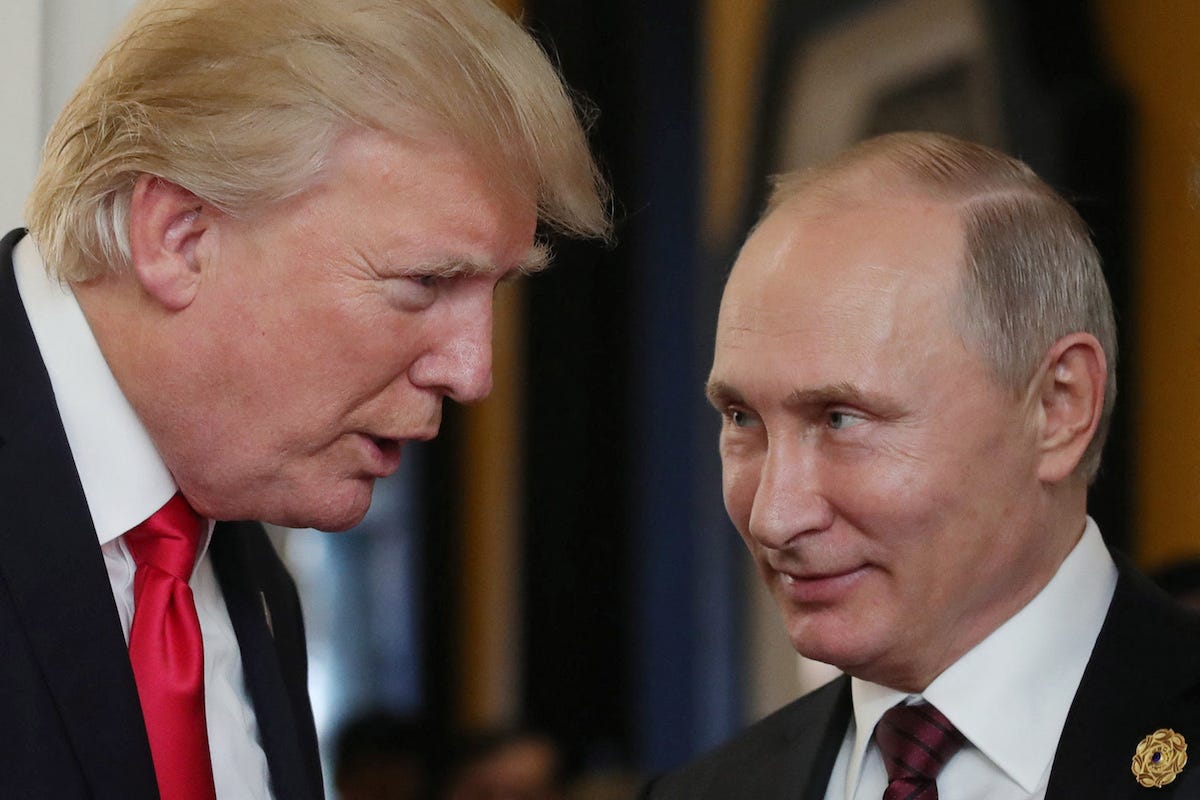Trump Did Collusion And Is Also A Fascist, Even If Democrats Can Be Pretty Lame Sometimes
An analogy that might shed some light on why the “Is Trump A Fascist?” debate is so tedious and interminable
In 2016, the Russian federation engaged in an extensive, coordinated campaign of cybercrimes to help Donald Trump defeat Hillary Clinton and become president of the United States.
Former FBI Director Robert Mueller—the Republican special counsel who was appointed in 2017 by a Republican deputy attorney general at the behest of Republican leaders in Congress—found that “The Russian government interfered in the 2016 presidential election in sweeping and systematic fashion,” using “a social media campaign that favored presidential candidate Donald J. Trump and disparaged presidential candidate Hillary Clinton [and] computer-intrusion operations against entities, employees, and volunteers working on the Clinton Campaign.” Mueller “identified numerous links between the Russian government and the Trump Campaign” and “established that the Russian government perceived it would benefit from a Trump presidency and worked to secure that outcome, and that the Campaign expected it would benefit electorally from information stolen and released through Russian efforts.”
A later, even more thorough bipartisan investigation by the Senate intelligence committee, spearheaded by its then chairman, the Republican Richard Burr, established facts that Mueller had not. Among them: Trump’s campaign chief Paul Manafort’s Kremlin-connected point man, with whom he shared sensitive campaign data, was in fact a Russian spy.
Several Trump operatives were tried and convicted for their conduct adjacent to the Russian interference and for trying to obstruct Mueller’s investigation.
The man who stymied Mueller most aggressively was Trump himself, who, by dint of being president, couldn’t be charged with (or, in Mueller’s thinking, even accused of) criminal obstruction. But the evidentiary record was clear. Trump tried to terminate the investigation, solicited document destruction, and dangled (and eventually supplied) pardons to witnesses and targets to secure their silence or lies.
In part as a result of this obstruction, Mueller did not believe he could sustain a criminal conspiracy case against Trump or members of his campaign, where he’d have to overcome an exceptionally high burden of proof. But the evidence of cooperation (or collusion, as it came to be called in the discourse) was voluminous. Not only did Mueller uncover contacts and inducements that were unknown to the public before his appointment, Trump himself openly solicited intervention (“Russia, if you’re listening”) and would go on to both defend soliciting foreign interference in U.S. elections and request and extort it from other governments ahead of the 2020 election.
But for Trump and many strange bedfellows, the story ended with Mueller’s determination that a Trump-Russia conspiracy could not be proved beyond a reasonable doubt. Trump, with help from his loyalist attorney general, insisted falsely that the investigation found “no collusion, no obstruction.” They cowed Democrats in Congress into “turning the page” on the “Russia! Russia! Russia!” matter and Trump has thus faced minimal accountability for what is, by the lights of Republican investigators, an outrageous scandal.
Trump continues to be thick with shady Russian figures and in thrall to other kleptocrats. A man his team connected with federal investigators was just indicted for lying to the FBI to frame Joe Biden, seemingly at the behest of his colleagues in Russian intelligence. By contrast a Trump-directed effort to find criminal behavior within the Russia investigation itself (and, thus, to discredit it) flopped embarrassingly.
In spite of all this, some of Trump’s most vocal defenders on the Russia question are leading lights of the American left.
RUSS TO JUDGMENT
The Russia scandal was a gateway for many leftists into anti-anti-Trumpism, because it threatened one of their highest priorities.


